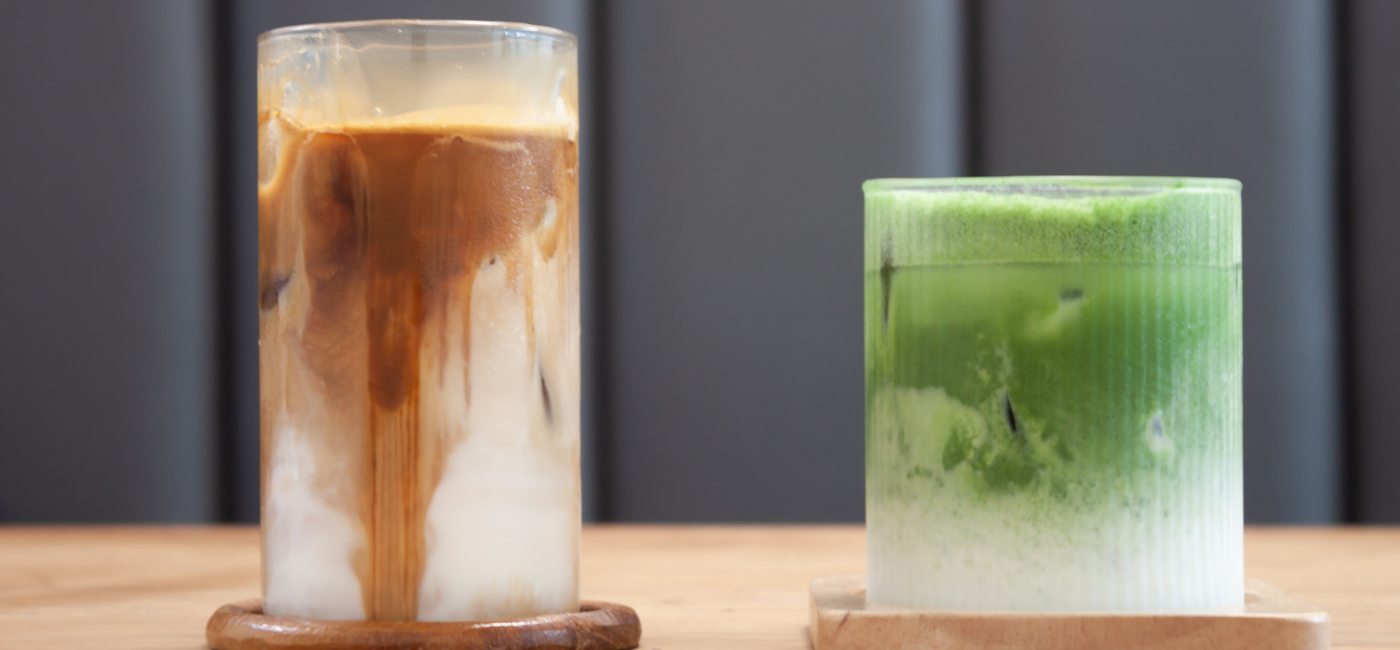

Match and coffee are in a battle right now. More and more people are swearing by the steady energy and health benefits of matcha. They're tired of the jitters and sleep issues that can come from one too many coffees.
On the other hand, so many people have a long history with coffee and love the ritual, flavor and energy.
In this article, we'll take a deep dive into the benefits and caffeine content of matcha and coffee, helping you make an informed choice for your daily fuel.
Make yourself a match latte and prepare to unravel the secrets behind these beloved beverages!
Matcha, the vibrant green powdered tea, has been capturing hearts worldwide with its sweet taste and enticing health benefits. Let's explore why matcha deserves a place in your cup:
Sustainable Energy Boost:
Enhanced Focus and Mental Clarity:
Overall Well-being:
Wonder Matcha builds on all of these benefits of matcha by incorporating natural adaptogens and nootropics like lion's mane mushroom.
Coffee, the beloved morning companion for many, has its own set of benefits and caffeine-related effects. Let's explore what coffee brings to the table:
Instant Energy Boost:
Improved Physical Performance:
Now, let's get to the heart of the matter and compare the caffeine content in matcha and coffee:
As mentioned above, one of the primary differences between these two sources of caffeine is not just how much caffeine you're getting, but how the caffeine works its way through your body.
With matcha teas, like Wonder Matcha, the caffeine will work slowly through your body. This gives you a more subtle, but still noticeable energy boost for a longer period of time.
Q: Does matcha contain less caffeine than coffee?
A: Yes, matcha generally contains less caffeine than coffee. However, even if you used more matcha the combination of caffeine and L-theanine in matcha provides a more balanced and sustained energy boost compared to the rapid effects of coffee.
Q: Can matcha provide a similar energy boost as coffee?
A: While matcha's caffeine content is lower than coffee, it still promotes a fantastic sustained energy and mental clarity without the crash often associated with coffee.
Q: How does caffeine affect sleep quality?
A: Both matcha and coffee contain caffeine, which can affect sleep quality if consumed too close to bedtime. It's advisable to limit caffeine intake in the late afternoon or evening to ensure a restful night's sleep.
In the realm of energizing elixirs, both matcha and coffee have their own unique benefits and caffeine-related effects.
Matcha offers a sustainable energy boost, enhanced focus, and overall well-being, thanks to its combination of caffeine, L-theanine, and powerful antioxidants.
Coffee, on the other hand, provides more of an instant energy jolt which can wear off more quickly.
When choosing between matcha and coffee, consider your desired energy levels, focus requirements, and overall health goals. Whether you opt for matcha's serene journey or coffee's quick buzz, remember to consume both in moderation and savor the experience.
So, the choice is yours—will you embrace the vibrant green allure of matcha or indulge in the rich aroma of coffee? Whichever path you choose, may your cup be filled with invigorating goodness!
If you're looking for a high quality matcha, checkout Wonder Matcha :) we highly recommend it.